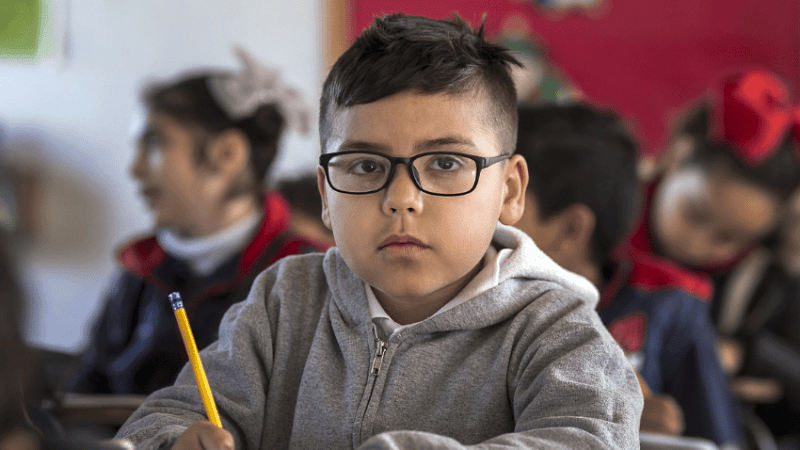SEND Parents Are Experts When It Comes To Their Children, So Trusting Schools To Do A Good Job Is Hard

Over the years I've discovered that other people don’t necessarily have the same sort of expectations for your child as you do

- by Nancy Gedge
- Experienced teacher, SENCo and author Visit website

When I sent my son Sam, who has Down’s syndrome, off to school, in his too big jumper and too long trousers, I did it without a care in the world. My son, my precious boy, was entering a world I knew well. A place where there were teachers just like me.
I had been involved with his education from the moment he was born. When you, get an at-birth diagnosis like Down’s syndrome, all sorts of protocols and supports swing into action and you realise pretty quickly that you are your child’s first and most important educator. It was a role I, funnily enough, relished. Planning, teaching and assessing was a way of life – before and after his birth. After a few years at home with babies, I was looking forward to working with teachers again.
Because I am a teacher too (and when my littlest made her own way through the school gates, so did I, back to the front of the class), I understand the language of education. I knew that, despite his very important and pressing needs (to me), my child would be sharing the attention of his teacher with 25 other children. We would muddle along together, I was sure. Because I was familiar with the landscape of cloakrooms and playtimes, school lunches and lost property, I sent him in with confidence. And in he trotted (with a little bit of fuss as we went past the nursery door), without a backward glance.
And now, would you believe, he is 16 and getting ready to leave school. His primary years are a distant memory. He is preparing for pastures new and I am getting a taste of what it is like to be anxious about his next steps. For he is entering a world I know nothing about and unknown territory is a little bit frightening. I did my best when we visited his new college not to be Overly Anxious and Overbearing Parent or Embarrassing Mother and attempted to ask only sensible questions about courses and timetables. If he had been that innocent four-year old from years gone by, he would have hidden behind my legs and refused to let go of my hand.
When you have a child with special educational needs it is hard to let them go, into the care of other people. You see, over the years, I have discovered that other people don’t necessarily have the same sort of expectations for your child as you do. And, when there is a heavy, value laden label like Down’s syndrome (or any other stigma-soaked diagnosis of a special need or disability, or even ‘disadvantaged’), sometimes, you find that other people’s expectations are lower than your own.
And then, there is a strange sort of transformation that happens to the parents of disabled children. Like me, they realise that they are the experts in their child, they gain all sorts of specialist knowledge and experience, and, they, like me, become worried and anxious when their child enters a world about which they know next to nothing. You get used to being in charge, and it is hard to trust someone else to do a good job.
When I look back on Sam’s primary journey, I’d be lying if I said it was all positive, and that those first, carefree steps were an indication of the next six years. It was a rocky road and I can’t help wondering if part of the problem wasn’t down to interpretation.
Anxiety can do funny things to a person. It can turn you from a ‘nice, normal mother’, the sort you are begging to come with you on the school trip, or help out when you have some classroom cooking to do, to the kind of parent who, when they darken your door, make your heart sink and wish that the floor would open you up and swallow you whole. But funnily enough, only when you don’t know what is at the root of the slightly bulging eyes and the requests for information.
Which is why, I suppose, that I am telling you this story. When parents and teachers work together, the beneficiary is the child with special needs. And the first step towards co-production is understanding.
Nancy Gedge is a consultant teacher with the Driver Youth Trust and author of Inclusion for Primary School Teachers. She has also been TES Teacher Blogger of the Year. Follow her on Twitter at @nancygedge and read her blog at notsoordinarydiary.wordpress.com.










